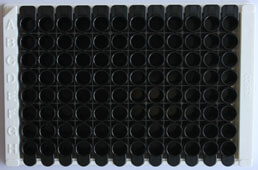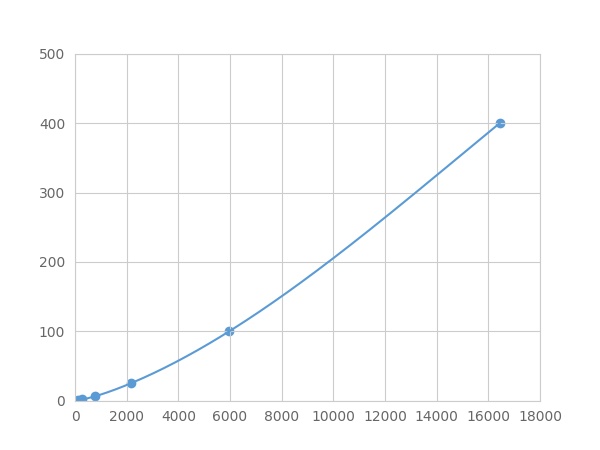Packages (Simulation)

Reagent Preparation

Image (I)
Image (II)
Certificate


Multiplex Assay Kit for Clusterin (CLU) ,etc. by FLIA (Flow Luminescence Immunoassay)
CLU; TRPM2; KUB1; CLI; APOJ; SGP2; AAG4; APO-J; SP-40; Apolipoprotein J; Complement Lysis Inhibitor; 40,Sulfated Glycoprotein 2; Testosterone-Repressed Prostate Message 2
(Note: Up to 8-plex in one testing reaction)
- Product No.LMB180Ra
- Organism SpeciesRattus norvegicus (Rat) Same name, Different species.
- Sample TypeSerum, plasma, tissue homogenates, cell lysates, cell culture supernates and other biological fluids
- Test MethodDouble-antibody Sandwich
- Assay Length3.5h
- Detection Range0.39-400ng/mL
- SensitivityThe minimum detectable dose of this kit is typically less than 0.13 ng/mL.
- DownloadInstruction Manual
- UOM 8Plex 7Plex 6Plex 5Plex 4Plex 3Plex 2Plex1Plex
- FOB
US$ 450
US$ 468
US$ 494
US$ 528
US$ 563
US$ 615
US$ 693
US$ 866
Add to Price Calculator
Result
For more details, please contact local distributors!
Specificity
This assay has high sensitivity and excellent specificity for detection of Clusterin (CLU) ,etc. by FLIA (Flow Luminescence Immunoassay).
No significant cross-reactivity or interference between Clusterin (CLU) ,etc. by FLIA (Flow Luminescence Immunoassay) and analogues was observed.
Recovery
Matrices listed below were spiked with certain level of recombinant Clusterin (CLU) ,etc. by FLIA (Flow Luminescence Immunoassay) and the recovery rates were calculated by comparing the measured value to the expected amount of Clusterin (CLU) ,etc. by FLIA (Flow Luminescence Immunoassay) in samples.
| Matrix | Recovery range (%) | Average(%) |
| serum(n=5) | 84-98 | 88 |
| EDTA plasma(n=5) | 90-98 | 95 |
| heparin plasma(n=5) | 79-95 | 86 |
| sodium citrate plasma(n=5) | 81-105 | 95 |
Precision
Intra-assay Precision (Precision within an assay): 3 samples with low, middle and high level Clusterin (CLU) ,etc. by FLIA (Flow Luminescence Immunoassay) were tested 20 times on one plate, respectively.
Inter-assay Precision (Precision between assays): 3 samples with low, middle and high level Clusterin (CLU) ,etc. by FLIA (Flow Luminescence Immunoassay) were tested on 3 different plates, 8 replicates in each plate.
CV(%) = SD/meanX100
Intra-Assay: CV<10%
Inter-Assay: CV<12%
Linearity
The linearity of the kit was assayed by testing samples spiked with appropriate concentration of Clusterin (CLU) ,etc. by FLIA (Flow Luminescence Immunoassay) and their serial dilutions. The results were demonstrated by the percentage of calculated concentration to the expected.
| Sample | 1:2 | 1:4 | 1:8 | 1:16 |
| serum(n=5) | 97-105% | 92-105% | 84-105% | 94-102% |
| EDTA plasma(n=5) | 88-95% | 93-101% | 95-103% | 97-105% |
| heparin plasma(n=5) | 91-99% | 81-98% | 83-93% | 93-101% |
| sodium citrate plasma(n=5) | 82-104% | 82-101% | 79-94% | 90-104% |
Stability
The stability of kit is determined by the loss rate of activity. The loss rate of this kit is less than 5% within the expiration date under appropriate storage condition.
To minimize extra influence on the performance, operation procedures and lab conditions, especially room temperature, air humidity, incubator temperature should be strictly controlled. It is also strongly suggested that the whole assay is performed by the same operator from the beginning to the end.
Reagents and materials provided
| Reagents | Quantity | Reagents | Quantity |
| 96-well plate | 1 | Plate sealer for 96 wells | 4 |
| Pre-Mixed Standard | 2 | Standard Diluent | 1×20mL |
| Pre-Mixed Magnetic beads (22#:CLU) | 1 | Analysis buffer | 1×20mL |
| Pre-Mixed Detection Reagent A | 1×120μL | Assay Diluent A | 1×12mL |
| Detection Reagent B (PE-SA) | 1×120μL | Assay Diluent B | 1×12mL |
| Sheath Fluid | 1×10mL | Wash Buffer (30 × concentrate) | 1×20mL |
| Instruction manual | 1 |
Assay procedure summary
1. Preparation of standards, reagents and samples before the experiment;
2. Add 100μL standard or sample to each well,
add 10μL magnetic beads, and incubate 90min at 37°C on shaker;
3. Remove liquid on magnetic frame, add 100μL prepared Detection Reagent A. Incubate 60min at 37°C on shaker;
4. Wash plate on magnetic frame for three times;
5. Add 100μL prepared Detection Reagent B, and incubate 30 min at 37°C on shaker;
6. Wash plate on magnetic frame for three times;
7. Add 100μL sheath solution, swirl for 2 minutes, read on the machine.
GIVEAWAYS
INCREMENT SERVICES
| Magazine | Citations |
| Endocrinology | Deficiency of Clusterin Exacerbates High-Fat Diet-Induced Insulin Resistance in Male Mice Pubmed: 24684302 |
| J Mol Neurosci. | Time-Dependent Decrease of Clusterin as a Potential Cerebrospinal Fluid Biomarker for Drug-Resistant Epilepsy. Pubmed: 24488574 |
| PLOS ONE | Serum Amyloid A and Clusterin as Potential Predictive Biomarkers for Severe Hand, Foot and Mouth Disease by 2D-DIGE Proteomics Analysis Pubmed:25268271 |
| journal of immunological methods | Proteomic analysis of human plasma and peripheral blood mononuclear cells in Systemic Lupus Erythematosus patients. pubmed:28390925 |
| Journal of Alzheimer's Disease | Proteomics Analysis of Blood Serums from Alzheimer's Disease Patients Using iTRAQ LabelingTechnology. pubmed:27911324 |
| Biochimica Et Biophysica Acta | Regulatory effects of simvastatin and apoJ on APP processing and amyloid-β clearance in blood-brain barrier endothelial cells pubmed:28941799 |
| World Neurosurgery | Clusterin, a New Cerebrospinal Fluid Biomarker in Severe Subarachnoid Hemorrhage: A Pilot Study pubmed:28803177 |
| BMC Cancer | Screening for immune-potentiating antigens from hepatocellular carcinoma patients after radiofrequency ablation by serum proteomic analysis Pubmed:29386009 |
| Diabetes/metabolism research and reviews | High serum clusterin levels are correlated with premature coronary artery disease in a Chinese population Pubmed: 30659732 |
| Cancer Cell Int | Discovery and validation of FBLN1 and ANT3 as potential biomarkers for early detection of cervical cancer 33602229 |
| Catalog No. | Related products for research use of Rattus norvegicus (Rat) Organism species | Applications (RESEARCH USE ONLY!) |
| RPB180Ra01 | Recombinant Clusterin (CLU) | Positive Control; Immunogen; SDS-PAGE; WB. |
| PAB180Ra01 | Polyclonal Antibody to Clusterin (CLU) | WB |
| LAB180Ra71 | Biotin-Linked Polyclonal Antibody to Clusterin (CLU) | WB |
| LAB180Ra81 | FITC-Linked Polyclonal Antibody to Clusterin (CLU) | WB; IHC; ICC; IF. |
| MAB180Ra21 | Monoclonal Antibody to Clusterin (CLU) | WB; IHC |
| SEB180Ra | ELISA Kit for Clusterin (CLU) | Enzyme-linked immunosorbent assay for Antigen Detection. |
| LMB180Ra | Multiplex Assay Kit for Clusterin (CLU) ,etc. by FLIA (Flow Luminescence Immunoassay) | FLIA Kit for Antigen Detection. |
| KSB180Ra01 | ELISA Kit DIY Materials for Clusterin (CLU) | Main materials for "Do It (ELISA Kit) Yourself". |





